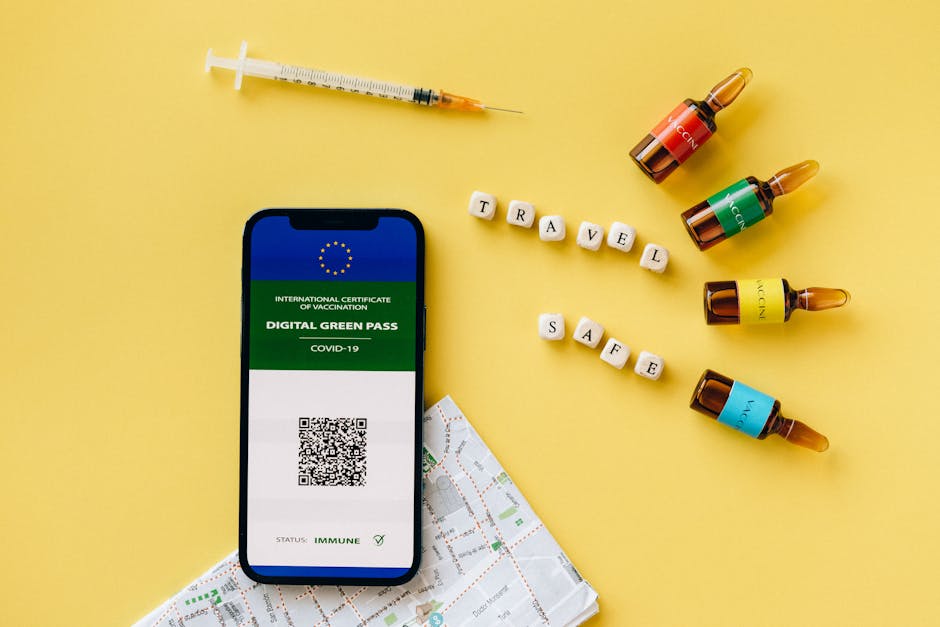Why Choose RPA for Healthcare Efficiency?
In the pursuit of operational excellence and improved patient care, the healthcare industry seeks solutions that offer precise control and efficiency. Robotic Process Automation (RPA) presents a compelling proposition for healthcare organisations striving to streamline their processes and maximise productivity.
By leveraging RPA, healthcare providers gain the capability to automate repetitive tasks, optimise resource allocation, and enhance the accuracy of critical operations.
This introduction will explore the inherent benefits of RPA in healthcare, its applications in various operational domains, and best practises for successful implementation.
Through a measured and informed approach, healthcare decision-makers can evaluate the potential of RPA to drive efficiency, compliance, and ultimately, elevate the standard of care.
Key Takeaways
- Improved operational efficiency and reduced human errors
- Streamlining of mundane and repetitive tasks
- Time and cost savings
- Enhanced patient care
The Benefits of RPA in Healthcare

In healthcare, the benefits of RPA (Robotic Process Automation) are evident through improved operational efficiency and reduced human errors. RPA technology streamlines mundane and repetitive tasks, allowing healthcare professionals to focus on more complex and critical responsibilities. By automating processes such as appointment scheduling, claims processing, and data entry, RPA significantly contributes to improving productivity within healthcare organisations. This not only leads to time and cost savings but also enables staff to allocate their time and skills more effectively, ultimately enhancing patient care.
Furthermore, RPA minimises the occurrence of human errors, which can have serious implications in healthcare. The technology ensures that tasks are performed accurately and consistently, reducing the risk of mistakes that could impact patient safety or result in compliance issues. By implementing RPA, healthcare facilities can establish a more reliable and precise operational framework, instilling confidence in both staff and patients.
Ultimately, the integration of RPA in healthcare not only enhances efficiency but also upholds the quality and reliability of services, making it a valuable investment for organisations seeking to optimise their processes.
RPA Applications in Healthcare Operations

With a wide range of applications, RPA plays a crucial role in optimising various healthcare operations, enhancing efficiency, and ensuring precision.
The automation benefits of RPA in healthcare operations are substantial. RPA can streamline administrative tasks such as appointment scheduling, claims processing, and billing, thereby reducing the potential for human error and increasing the speed of these processes.
Additionally, RPA can be utilised in operational streamlining by automating data entry and management, ensuring accuracy and consistency in patient records and reducing the time healthcare professionals spend on administrative tasks.
Furthermore, RPA applications in healthcare operations extend to inventory management, where automated systems can track and manage medical supplies, ensuring that stock levels are maintained and orders are placed promptly.
Improving Patient Care With RPA

As healthcare organisations continue to seek efficiency through RPA applications in various operational aspects, the focus shifts to how RPA can directly contribute to improving the quality of patient care. Patient engagement and satisfaction are critical components of healthcare, and RPA can play a significant role in enhancing these aspects.
By leveraging RPA for workflow automation, healthcare providers can streamline administrative processes, allowing staff to devote more time to patient care. This can lead to improved patient experiences, reduced wait times, and personalised care plans.
Additionally, RPA can facilitate better communication between patients and providers, ensuring that patients are more actively involved in their care. Automated appointment reminders, follow-up messages, and personalised health education materials can lead to increased patient engagement and adherence to treatment plans.
Furthermore, RPA can help in identifying and addressing gaps in patient care, such as missed appointments or overdue preventive screenings. By automating these processes, healthcare providers can ensure that patients receive timely and appropriate care, ultimately improving patient outcomes.
Transitioning into the subsequent section about ‘enhancing compliance and accuracy with RPA’, the integration of RPA in healthcare operations not only improves patient care but also enhances overall compliance and accuracy.
Enhancing Compliance and Accuracy With RPA

Enhancing compliance and accuracy through the integration of RPA in healthcare operations ensures the delivery of precise and consistent care while meeting regulatory standards. Compliance automation and accuracy enhancement are critical in healthcare, and RPA offers significant benefits in achieving these goals.
RPA enhances compliance and accuracy in healthcare through:
-
Consistent Adherence to Regulations: RPA ensures that every task and process is carried out in strict adherence to regulatory requirements, minimising the risk of non-compliance and associated penalties.
-
Error Reduction: By automating repetitive and manual tasks, RPA significantly reduces the likelihood of human error, thereby enhancing accuracy in various healthcare operations such as claims processing and patient data management.
-
Real-time Monitoring and Reporting: RPA provides real-time monitoring and reporting capabilities, allowing healthcare organisations to track and document compliance-related activities, ensuring transparency and accountability.
-
Standardised Documentation and Processes: RPA streamlines documentation processes, ensuring that all records are consistently maintained, organised, and compliant with industry standards.
The integration of RPA in healthcare operations not only enhances compliance and accuracy but also contributes to overall operational efficiency and improved patient outcomes.
RPA Implementation Best Practises

To ensure successful integration of RPA in healthcare operations, it is essential to implement best practises that aline with industry standards and organisational requirements. Implementation challenges are inevitable when introducing RPA into healthcare processes. Therefore, it is crucial to conduct a thorough analysis of the existing workflows and identify the areas where RPA can bring the most significant impact.
Additionally, RPA training should be a key focus during the implementation phase. Providing comprehensive training to staff members who will be working alongside RPA systems is essential for a smooth transition and sustained efficiency. Moreover, it is important to establish clear communication channels and change management protocols to address any resistance or concerns from employees.
Continuous monitoring and evaluation of RPA implementation are also vital to identify areas for improvement and ensure that the technology alines with the evolving needs of the healthcare organisation. By addressing these implementation best practises, healthcare facilities can navigate through the challenges and maximise the benefits of RPA integration.
Frequently Asked Questions
How Does RPA Technology Impact Healthcare Costs and Expenses?
RPA technology impacts healthcare costs and expenses by reducing errors and increasing productivity. It automates repetitive tasks, streamlines processes, and enhances accuracy, ultimately driving down operational expenses and improving overall cost efficiency in healthcare organisations.
What Are the Potential Risks and Challenges of Implementing RPA in Healthcare Operations?
What potential risks and implementation challenges are involved in integrating RPA into healthcare operations? Ensuring data security, overcoming resistance to change, and integrating with existing systems are key challenges that require careful consideration and planning.
How Does RPA Technology Affect the Relationship Between Healthcare Providers and Patients?
Enhanced communication through RPA technology in healthcare fosters stronger relationships between providers and patients, leading to improved patient satisfaction. Automated processes streamline administrative tasks, allowing providers to focus more on personalised patient care.
What Are the Specific Regulations and Standards That Govern the Use of RPA in Healthcare?
Regulatory compliance is crucial for RPA in healthcare to ensure adherence to HIPAA, GDPR, and other standards. Data security measures must be robust to protect sensitive patient information, making it essential for RPA systems to meet stringent regulatory requirements.
What Are the Key Considerations for Selecting and Integrating RPA Tools Into Existing Healthcare Systems?
When integrating RPA tools into healthcare systems, key considerations include understanding the integration challenges and establishing selection criteria. Navigating these factors effectively ensures seamless incorporation of RPA for enhanced operational efficiency in healthcare settings.
Conclusion
In conclusion, the use of RPA in healthcare has proven to be an efficient and effective way to improve operations, patient care, compliance, and accuracy.
Despite concerns about the initial investment and implementation process, the long-term benefits and improvements in efficiency make RPA a valuable asset for healthcare organisations.
With proper planning and strategic implementation, RPA can significantly streamline processes and ultimately lead to better patient outcomes.
Contact us to discuss our services now!
